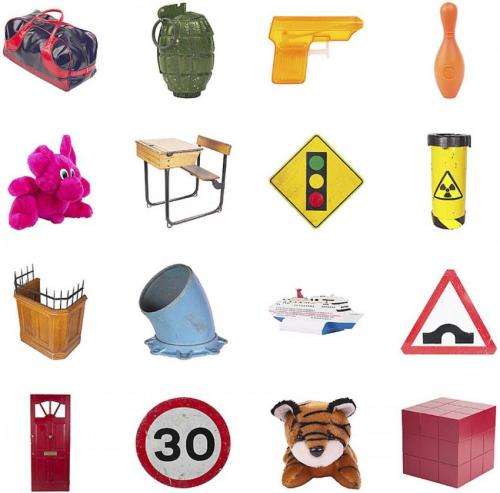Neuroscientists show how neurons respond to sequences of familiar objects

The world grows increasingly more chaotic year after year, and our brains are constantly bombarded with images. A new study from Center for the Neural Basis of Cognition (CNBC), a joint project between Carnegie Mellon University and the University of Pittsburgh, reveals how neurons in the part of the brain responsible for recognizing objects respond to being shown a barrage of images. The study is published online by Nature Neuroscience.
The CNBC researchers showed animal subjects a rapid succession of images, some that were new, and some that the subjects had seen more than 100 times. The researchers measured the electrical response of individual neurons in the inferotemporal cortex, an essential part of the visual system and the part of the brain responsible for object recognition.
In previous studies, researchers found that when subjects were shown a single, familiar image, their neurons responded less strongly than when they were shown an unfamiliar image. However, in the current study, the CNBC researchers found that when subjects were exposed to familiar and unfamiliar images in a rapid succession, their neurons—especially the inhibitory neurons—fired much more strongly and selectively to images the subject had seen many times before.
"It was such a dramatic effect, it leapt out at us," said Carl Olson, a professor at Carnegie Mellon. "You wouldn't expect there to be such deep changes in the brain from simply making things familiar. We think this may be a mechanism the brain uses to track a rapidly changing visual environment."
The researchers then ran a similar experiment in which they used themselves as subjects, recording their brain activity using EEG. They found that the humans' brains responded similarly to the animal subjects' brains when presented with familiar or unfamiliar images in rapid succession. In future studies, they hope to link these changes in the brain to improvements in perception and cognition.
More information: Image familiarization sharpens response dynamics of neurons in inferotemporal cortex, Nature Neuroscience, DOI: 10.1038/nn.3794



















